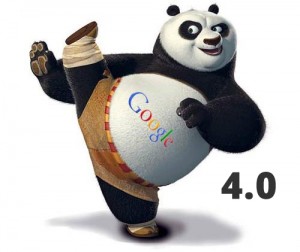The Unofficial Official Google Pigeon Update
In recent news, it appears that the people have given Google’s Panda 4.0 algorithm a loving nickname: Pigeon. What do a pigeon and a panda have in common? They both have a healthy dislike of low quality web content and not so stellar websites, and they aren’t afraid of cleaning up the local search engine results scene. In July, Marketing Land’s Barry Schwartz published an article in which a major Panda-based local search algorithm update pushed out by Google was officially named the Pigeon update. The update was pushed to U.S. and English-based search results. It reportedly impacted SEOs, webmasters, and local business owners in the areas of Google Web Search and organic local listings within Google Map Search. The July 24th Update According to Schwartz’s coverage of the July 24th update via Search Engine Land, the core changes set into motion by Google Pigeon are behind the scenes. However, their impact is visible on local search results rankings. Local businesses saw either an increase or decrease in their web site referrals, leads, and business. Google reportedly stated that the update improved their distance and location ranking parameters. In July, it was rolling out for US English results. The ultimate goal of the update was to provide more useful and relevant results for users conducting local searches. On the local front, Search Engine Round Table stated that the update was felt by SEOs and Webmasters, who saw a significant change in rankings on the local search level. On a positive note, Matt McGee reported via Search Engine Land that the lovingly nicknamed Pigeon update fixed a Yelp problem with Google. An Unconfirmed Google Pigeon Update Breaking news in the SEO world hit earlier this week as reports of an update to Pigeon spread across the net. Schwartz reported “Pigeon fluctuations” via Marketing Land on Monday, August 2nd. The fluctuations, discussed in greater detail by savvy search marketers including Andrew Shotland, seem to indicate some fine-tuning is now transpiring behind the scenes. Google’s July update followed the norm meaning it wasn’t without hiccups. For example, it was a tad embarrassing for Google to announce their update to improve the fundamentals of local search results only to be greeted by: Expedia certainly isn’t a local result and shouldn’t hold this spot in a local-based search. Accidents happen, and it appears that Google tinkered until the issue was fixed: When asked if a small update went live, Google refused to confirm or deny the change. However, Marketing Land’s coverage noted that Google did say they “don’t have a specific update to announce here” and that they “probably won’t detail all the changes to local search algorithms as [they] go.” It’s likely the notorious Google elves are working tirelessly in the background, but chances are we won’t hear much about it. Optimizing For Pigeon According to Andrew Shotland, some good has come from Google Pigeon. In a recent tweet, he said, “Client just hit page 1 for “Chicago” + {Main Keyword}. Starting to like this Pigeon thing.” But what we really want to zero in on is how to optimize or tweak our content to achieve or maintain the best possible SERPs post-Pigeon. Shotland had this to say via Twitter: Client just hit page 1 for "Chicago" + {Main Keyword}. Starting to like this Pigeon thing — Andrew Shotland (@localseoguide) August 5, 2014 "There Is Really No Way To Optimize For This Algorithm Because The Results Are Random And Make No Sense…": http://t.co/CxqNaGETlr — Andrew Shotland (@localseoguide) August 5, 2014 Shotland makes an observation that speaks volumes. In his article published at LocalSEOGuide.com, he says, “Google is in control…they do everything for users!” This observation is especially interesting, as Google has been pushing the need for high quality content and websites since before the start of 2014. SEO trends have strongly focused on the need for a sound content marketing plan. Content marketers have stressed the need for high quality content that speaks to the user and delivers relevant information. The main idea (or strategy) is to know one’s target audience and keep them firmly in focus, crafting content that is informative, relevant, and engaging—the very definition of shareworthy. In turn, Google and its array of beastly algorithms are on the hunt for websites that produce high quality, relevant content that will hand search engine users the best possible experience. Based on the available information, there is no credible or reliable How to Optimize for Pigeon Guide. However, the evidence does support that the best action is to continually work on all of that good old best practice stuff, just as you always have. Google is working out the kinks to their local search parameters. If you continually uphold best practices and work to craft content your audience finds useful, relevant, and engaging, then you’ll weather updates well in the long run. This is not to say that an update won’t suddenly decrease your ranking due to unexpected and “must fix” errors on Google’s part. What’s Our Best Rule? The Ground One: Quality Content Optimization for Google Pigeon isn’t a viable option at this point. The results are random, and according to Shotland currently “make no sense.” Therefore, the best defense is to keep focusing on quality content, and chances are Google will smooth the rest out on their timetable.

